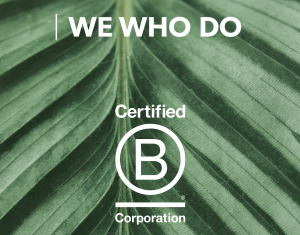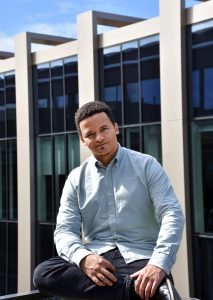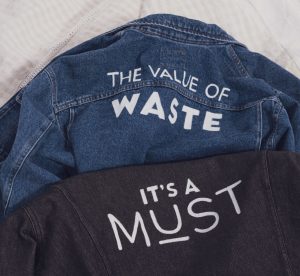So, back to the basics — why is hiring and keeping the right people so critical for your company?
- Start-up, scale-up, bigger corporate? We are all human-powered organisations. Our businesses are made up of our people, and we’re only as good as the sum of our talent pool combined with our ability to work well together.
- Hiring takes ages. Firing takes even more time. Both consume a LOT of energy.
- A bad hiring decision costs you more than time, it costs opportunities, cash and will damage your whole organisation.
Having looked into a lot of organisations and discussed with many founders or C levels in great companies, here are a few tips that might help you save some precious time.
Breaking barriers and the wall of expertise
How could we build a company that was going to disrupt the entire furniture industry? Should we be hiring furniture experts who have been shaping and shaped by this sector for decades? How were we going to do things differently? How could we find a way of developing new ranges of products within three months when decades of experience showed the best practice was 12 to 18 months? Feedback from industry experts was showing that short product development lead times were not meant for the furniture industry. So why insist?
That was a bit of a shock when, looking backwards, I remembered that we spent our first 3 years building Made.com and trying NOT to hire people from the industry. Why the hell would we do that? The answer came quite quickly: we wanted people who were able to look and think outside of the box. We wanted to disrupt a market that hadn’t been disrupted for ages. We therefore wanted people who would understand — and enjoy — doing things differently. That involved bringing in some people who wouldn’t be constrained by the known limits of our industry. People who would bring in fresh ideas from very different markets.
Expertise and experience come with comfort, and comfort doesn’t break barriers. Don’t hire people experienced in their market. Hire people experienced in breaking barriers. This is obviously to be taken with a pinch of salt as you also want to be an absolute expert in your field, but that’s the underlying hiring principle.
The first consultant we paid big money to help us dig into this market suddenly stopped in the middle of our first session, asking us why the hell we wanted to sell furniture online. “I’ve been in the furniture mail order business for years, and believe me, I lost all my hair trying to make it work.” And he didn’t have much hair left…
There were only 2 things to do at this stage: 1. Learn all that we could from him about what could cause us to fail and the bottlenecks of our industry, and 2. Hire somebody new who didn’t know making this work was impossible.
What’s more, breaking barriers leads to innovation, fast growth, new opportunities, enthusiastic teams and fun. Who doesn’t want fun?
Everyone is able to identify the right technical skills, very few look out for the right soft skills
When you start hiring a lot, you also start failing a lot. This is utterly frustrating when you’re spending half your time building a team and interviewing people again and again.
Why was this hire better than this one? Was our due diligence weaker on him, or stronger on her? We started looking into the common reasons for failed hires, and a big one seemed to be that while we thought we were testing candidates’ soft skills (we got them to meet their future team, we brought them with us to the pub, we asked the usual bla-bla questions…), we were actually not testing them well. Or we didn’t know what to look for.
Following some very wise advice from one of my best friends and an inspiring leader, I started looking at the qualities we’d want each of our team members to have. The list we drew up after brainstorming with three direct line managers was a draft, and could obviously be improved upon, but it ended up like this:
Smart — Experience is one thing, but the ability to think fast and sharp isn’t something we can screen for on a CV.
Hard working — The whole team was working their asses off to make the world a better place, one sofa at a time. We needed people who could take a workload hit when necessary.
Hungry (ambitious and willing to learn) — While building an organisation, you constantly need people who are able to take up more responsibilities. That’s a great thing to look for in interviews, but not everybody is willing to move up or learn how to.
Flexible — The start-up world is not made or meant for everybody. This is not a judgement of quality, but some amazing individuals just won’t thrive in it. Having your job spec or internal procedures change on a weekly basis isn’t fun.
Loyal — Hire people who are there for the long-run. You’ll reward them well. They’ll reward you ten times more.
Ethical — Unfortunately, in the manufacturing or sourcing industries, sh## happens…
(Disclaimer: this is not a refined list, this is an actual copy and paste from years ago, so be nice)
While “SHHFLE” made for a really crap acronym and I’d have preferred a more marketable word, these values helped when screening candidates. Build your own list of values, and screen your top three candidates by asking yourself “Would they tick all these boxes?” You can use your conclusions in the next interview with them.
As a first draft, this obviously lacked crucial skills such as being a team player, etc etc. However, the important thing here is that this list needs to come from your own team.
Willingness to learn defines the future potential of one’s learning curve
Back to the 2nd H in SHFFLE: Hungry.
To be honest, this isn’t the best word and nor does it represent well enough what we meant by that. The most important part (and probably the most important soft skill of them all) is the willingness to learn.
Nobody comes equipped with the perfect tool kit of hard and soft skills. Nobody will ever be able to do an amazing job at every single level within your company. At least not without a huge desire to learn everyday.
People who don’t want to learn will be roadblocks in building a great organisation. People who are craving new knowledge and opportunities will have an impact at every level of your business. They will also have a great influence on their teammates. They are your golden egg. Go for it.
A quick win?
Think about refining your “What are your qualities and drawbacks?” interview question into “What will I need to help you with in that job? What do you consider yourself an expert in, and what will you need to learn?”
Hire fast, assess fast
No, it doesn’t have to be “fire fast”.
I’ve seen great successes in hiring people even when we had doubt about them. I’ve seen more failure after hiring the perfect candidate, even after screening them for their soft skills. However, a common mistake managers do (and I did it numerous times) is not to assess their new recruit quickly enough.
It’s ok to hire someone you are not 100% sure of at interview stage. My best recruit ever didn’t have a perfect CV, nor was he ticking all the boxes, but I had a great feeling and was willing to give him a chance. You only learn about someone by having them on your side for a while. Let them jump on the ride with you and only then you’ll know whether they can drive the car. We hired him, he impressed us for years until leaving us for a better, higher paid job, which he highly deserved.
However, assess them fast. Probation periods aren’t there so you can fire a new recruit three months later because, suddenly thinking about it eleven weeks after bringing them in, you’re not sure whether they’ll be the perfect fit or not. Probation periods are there so you can assess people, test them, challenge them and give them a chance to prove to you that they can walk the walk. And, by the way, it works both ways.
After 1 month: Assess the positives and negatives of your new recruit, test her/him, give feedback (already), ask questions and see how it goes.
After 2 months: Assess, repeat, start making up your mind, give them a chance. You’re not allowed regrets, as it’s all on you.
After 3 months (earlier if you can, please): Make up your mind and decide to stick with them or cut your losses, without bad feelings.
Stop the search for lookalikes
Hiring is not like a Facebook lookalike targeting campaign. Your best next hire isn’t usually a clone of the previous one, or at least you can’t build a whole organisation made of that one great individual you’re in love with and would marry if (s)he was single (and you were too). So stop looking for people who are the mirror image of one another.
This is a more common issue in bigger corporates, where Level 3 marketing execs will, for instance, need to have done X years in two other businesses in the same industry, and prove they have skills Y and Z. This often leads to skilled teams lacking creativity and with a lower potential for innovation.
Cross-industry knowledge is a GREAT asset. Multicultural teams, as well as multi-backgrounds, are an even bigger one. Emotional intelligence and the ability to take different views in a conflict is crucial in any business environment. Ensuring you have a real mix of personalities and backgrounds in your teams will help.
Get help
Two things can often block you from becoming a better person, a better manager, a better leader or a better exec: 1. The reticence to ask for and listen to feedback, and 2. A great mentor, a coach, people to learn from.
Feedback works the same way in every aspect of your life: you rarely ask for it from your family, from your spouse or at work, or from your customers. People are too scared of what they will hear, especially when they already know what they’ll be told. There is no bigger mistake. Asking for feedback 1. Channels negative feedback and helps defuse it 2. Shows your maturity and willingness to improve, and 3. Helps you to grow.
Mentors or coaches will help you on your way when it comes to dealing with this feedback. Nobody is expected to learn how to change just like that. You need to learn from somewhere, or someone. Hiring and managing people is tough and isn’t taught at school, and even if it were, you wouldn’t be ready to make the most of what you’re being taught. Don’t be shy. Go and learn from others, even if it costs you time or money. You’re spending it on you, not on Netflix 🙂








